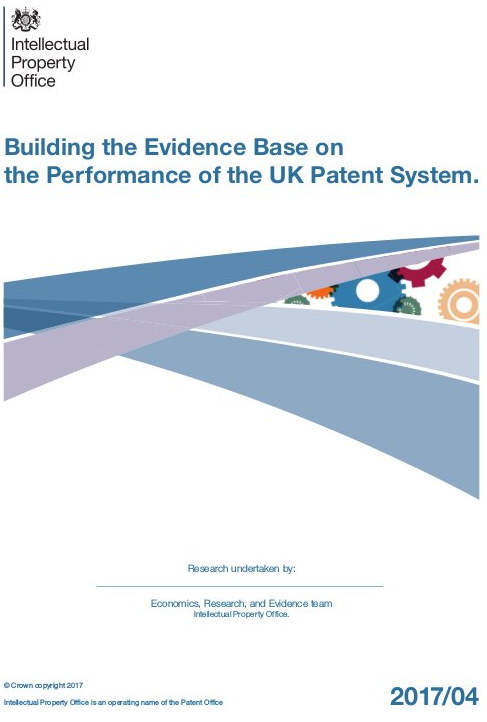

[PDF] and unlike Bristows and Managing IP (UPC boosters), the Kats don't spin it as a UPC thing. Unlike the Unitary Patent (UPC) zealots, they don't pretend there's something in it about the UPC. Here is the relevant bit:
UK patent system: Building the evidence base, a new UK IPO Report
The UK IPO has produced a report titled ‘Building the Evidence Base on the Performance of the UK Patent System.’ The research considers the UK patent system through a range of sources including stakeholder interviews, analysis of data, and existing academic literature, looking at how companies patent in the UK, who patents in the UK, and how the UK system compares to other countries.
The report suggests that overall the operation of the UK patent system is positive. The number of patents covering the UK is high; however, UK firms appear underrepresented in patent applications, with a lower proportion of domestic applicants than other countries.
A costs order from the IPO against an English entity can most conveniently be enforced through IPEC using the district judges that man the small claims track. A statutory demand is a bit OTT unless there is reason to believe the company is insolvent and would be better struck off. If you prefer a simple life at the desk you could just do a money claim online for the debt but the court fees are higher and if the defendant does not pay you are still back with enforcement. The Money Claim Online works with a UK company that is solvent and really does not want any judgements against it and simply has not paid because its peeved by the decision. The UK IPO name and shame procedure is best for foreign parties with no real business or assets in the UK to enforce against.
As traditional biomedical research and data science have converged, we have seen an influx of patent application filings in this newly developing space. The preparââ¬â¹ation and prosecution of these cross-disciplinary patent applications have posed unique challenges and there remains a great deal of uncertainty and confusion around certain patentability challenges both in the United States and the European Union. In this highly informative program, our panel of examiners from the US Patent Office and the European Patent Office will do a deep dive into the roadblocks that precision medicine and bioinformatics patent applications can face. We will also cover the main differences between the EPO and the USPTO and address how to best navigate them in the current legal environment.ââ¬â¹